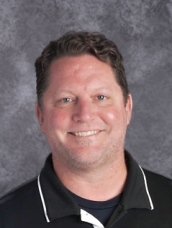PRESIDENT’S BLOG: WHAT MAKES GREAT TEACHERS?

In a completely rational society, the best of us would be teachers and the rest of us would have to settle for something else.
— Lee Iacocca
I credit my love of history—and my decision to become a history teacher—to two of my favorite teachers from high school: Tony Maucione and Ron Long. My three older siblings had all attended and graduated from Gonzaga Prep by the time I arrived in the Fall of 1986. My two brothers and my sister all had Mr. Maucione and Mr. Long for history classes during their time at GPrep. They were both spoken of with great reverence in my house and were true legends on the faculty. Mr. Maucione was my junior US History teacher and Mr. Long was my senior AP US History teacher–they later became my teaching colleagues during the four years I taught at GPrep from 2000 to 2004.
Mr. Maucione was the chair of the history department and in addition to teaching US History, he also taught AP European History and The History of Classical Music. His room was filled with artwork and tributes to the great thinkers, artists, musicians, and leaders in world history. Mr. Maucione’s survey course of US History was fast-paced because he wanted us to be able to study contemporary US history in addition to the significant turning points of early American history.
While I was riveted by his lessons on the Kennedy administration, Watergate, and the Iranian Hostage Crisis, what I remember most about his class was the blue book test we took during our unit on the American Civil War. GPrep didn’t have a bookstore on campus but Gonzaga University was just a mile down the road. For this essay and short answer test we were required to visit the GU bookstore and purchase a blue book—the total cost was $1. After school and before football practice a group of us raced to the Crosby Center—named after GU alum Bing Crosby—to purchase our blue books. We felt like college students for five minutes–a brilliant move on the part of Mr. Maucione in introducing us to college life as we were discerning our respective futures. Years later when I returned to teach at GPrep, I repeated this exercise with my own students, even down to requiring they purchase the blue book at GU.
Mr. Long was more than just a legendary teacher at GPrep. For nearly 40 years he served as the freshman football coach, was the senior class advisor, attended countless Search retreats, and as an alumnus of GPrep was the living spirit of the school. His intensity on the football field (he channeled his inner Bear Bryant at all times) carried over into the classroom. As I arrived as a freshman, Mr. Long began a battle with multiple sclerosis. He relied on a cane and the podium to steady himself while teaching and his movement at practices and games were limited. His courage and strength in confronting his disease were not lost on the students and his colleagues. There was not a more beloved person on campus during his time at GPrep.
As fate would have it, my senior year in Mr. Long’s class coincided with the end of the Cold War—or at least the beginning of the end. I recall a day in late Fall of 1989 where Mr. Long opened class with the news coverage. He explained to us the current state of the world was changing for the better, and he wanted us to fully understand the impact of this moment in time. He became emotional as he talked about the separation of families between East and West Germany now coming to an end as the East Germany government granted permission for its citizens to cross into West Germany. The official opening of the Brandenburg Gate that December was celebrated with concerts and fireworks—and thousands of Germans knocking down chunks of the Berlin Wall. We were witnessing history, and Mr. Long narrated it for us as it happened. I felt so grateful he was there to share this amazing moment with us.
After completing undergraduate work at Santa Clara University and earning my teaching degree from Gonzaga University I began my teaching career in 1997 at South Whidbey High School. When a position opened at Gonzaga Prep three years later I leapt at the chance to “come home” and my family and I moved back to Spokane. Teaching at GPrep was very special for me. Many of my high school teachers were still on staff along with over a dozen alumni, many of whom were students during my time at Prep. I felt blessed to be able to serve alongside Mr. Maucione and Mr. Long at my own high school and I was committed to passing along their passion through my teaching.
Then, one morning in September 2001, history happened before our eyes as it had for me that Fall in 1989. As I arrived on campus on the morning of September 11, students were pouring into classrooms to watch the news coverage. I taught across the hall from Mr. Long and I asked him what he would be doing that day in AP US History—we now shared the two sections of the course. He advised me to put aside my lessons for the day, and walk with the students through the uncertainty, stress, sorrow our entire nation was feeling. He recalled his teacher doing that for him in November 1963 when President Kennedy was killed. I spent that day and the coming weeks covering the history happening before our eyes—just as Mr. Long did for me.
I transitioned from the classroom into full-time administration in 2011 and have been blessed to observe amazing teachers at work across every department in the schoolhouse. Along the way I witnessed my two children navigate through high school, shepherded by loving teachers, coaches, and mentors. Great teachers do much more than teach content and material. They minister to students in the challenging moments, they impart wisdom and compassion, and they teach lifelong skills. Just as my teachers inspired me to follow a path to my future vocation, my children can point to teachers who have guided them to consider their future.
Archbishop Thomas J. Murphy celebrated a liturgy on the Archdiocese of Seattle Inservice Day on September 11, 1992. His homily reflected on the service of Catholic school teachers and the ministry of teaching. He shared the following with the faculty, staff, and administration teams from all of the parish schools and high schools of the Archdiocese: “My friends, thank you for helping to change tomorrow. Thank you for making a difference. Thank you for creating dreams and hopes, not only by your words, but by who you are. Thank you for being people of passion, who are creating a new world and a set of values by who you are and the example you share. You are creating a new tomorrow. May we never take you for granted.”
During my blog series this year I look forward to visiting with members of our faculty and administration—past and present—to reflect on the art of teaching and the impact educators have on their students.
